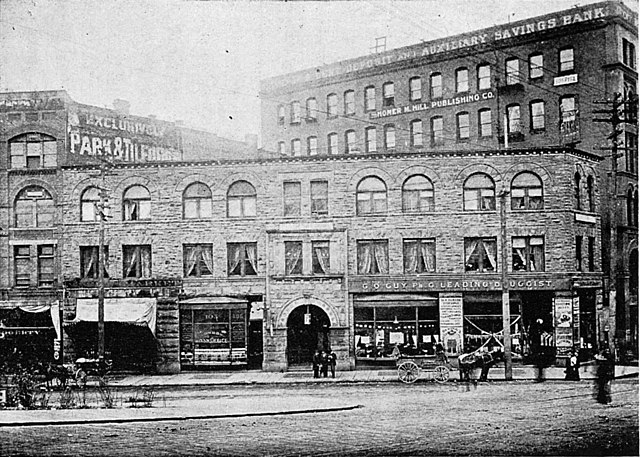John Considine, Seattle’s master showman, was born in Chicago in 1868. A devout Roman Catholic and family man, he drifted to booming Seattle in 1889. A sociable fellow, Considine saw a career in his new, raw city in show business, and he took it.

When he became manager of the People’s Theater, at 172 S. Washington St., profits flowed from admissions, liquor, and card games. Female performers in the variety acts circulated among patrons selling drinks.
After the Klondike Gold Rush changed Seattle into a boomtown, the tenderloin — everything south of Yesler Way — was where the action was and the People’s Theater thrived. Considine bought an interest in a famous saloon called Billy the Mug’s at Second Avenue and Washington Street, with a gambling joint upstairs.
Considine’s luck began to change when Seattle Mayor Tom Humes appointed William L. Meredith Chief of Police. Meredith moved against Considine’s practice of having girls cadge drinks from customers. Parlaying his considerable political influence, Considine managed to force Meredith’s resignation.
Several days later John Considine and his brother Tom were walking north on Second Avenue. An angry ex-chief Meredith was walking south on the same street. At the corner of Second and Yesler John Considine stepped into G.O. Guy’s drugstore. Meredith raised a sawed-off shotgun and fired point blank at Considine, miraculously missing its target. The ex-chief fired again at the surprised and now fleeing Considine, one pellet striking his neck.
Meredith dropped the shotgun and reached for a Colt revolver on his hip. Considine leapt on his assailant, out-weighing him by 60 pounds, and pushed Meredith toward the drugstore’s entrance. Brother Tom Considine joined the fray beating Meredith about the head with the pistol. In the ensuing melee, Meredith and the Considine were pulled apart by passersby, including two police officers. Considine manage to break free, grab a third weapon from Meredith’s pocket (a .38 bulldog revolver), and shoot his assailant three times.
Considine stood trial for murder in the first degree, and he was found innocent. The defense had used the Doctrine of Continuous Struggle and had noted the several threats made by the ex-chief against the defendant.
John Considine, later one of Seattle’s pre-eminent theatrical impresarios along with John Cort and Alexander Pantages, helped showcase early Edison films. He also bought theaters throughout the West and for years managed the successful Sullivan-Considine circuit with 20 theaters in the Northwest. In his last years he moved to Los Angeles and found sunny contentment as a movie producer.
Discover more from Post Alley
Subscribe to get the latest posts sent to your email.

Great history story.
Thank you.